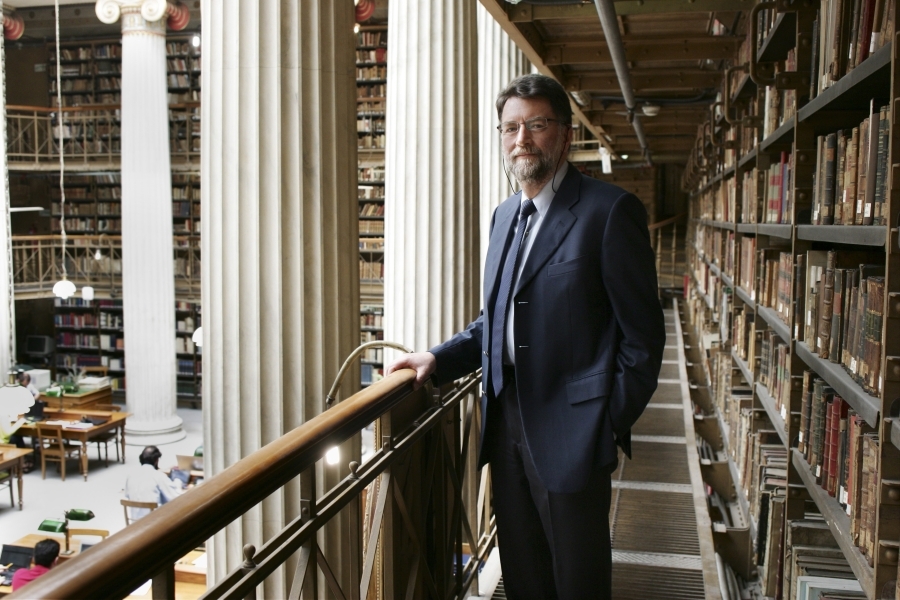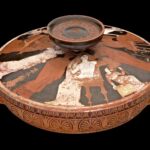The National Library of Greece, under the direction of Dr. Filippos Tsimpoglou, General Director, is methodically preparing for a historic relocation that will enable its transition into a new digital era of innovation and extroversion. From the Vallianeio historic neoclassical building in the center of Athens, which together with the University of Athens and the Academy form the Athens Trilogy, the National Library is moving its headquarters to a state-of-the-art building erected by architect Renzo Piano for the Stavros Niarchos Foundation Cultural Center (SNFCC). At the building on Panepistimiou Street, feverish preparations are underway ahead of the moving process. The reading room has been temporarily closed to the public and every corner is a hive of activity, full of library employees and external staff, conservators in white coats and plastic gloves preparing the collections for the monumental transfer.
The nearly 22,000 m2 (235,000 sq. ft.) impressive building at SNFCC combines tradition with technological innovation, conservation with information and communication, thus ensuring that the National Library can respond effectively to the ever-changing needs and challenges of the digital age. The entrance to the Library leads into a large open lobby that provides an immediate visual orientation to all the organization’s functions. The natural light creates an open hospitable environment for individual and collaborative learning. Within its new premises, the National Library of Greece will thus be able to strengthen its role in the field of Research, while expanding its focus from an exclusive research facility to an inclusive public resource, an active hub for knowledge, enterprise and innovation.
The General Director of the National Library of Greece Dr.Filippos Tsimpoglou spoke to Reading Greece* about the time schedule for the relocation of the Library to its new premises, noting that the library opening is being scheduled for Autumn 2017. He also elaborates on the new and enlarged role the National Library will be called to play in its new premises, explaining that the aim is to “offer a framework for information literacy, while applying innovative methods and approaches to learning which will constitute best practices and raise standards for all libraries in Greece”.
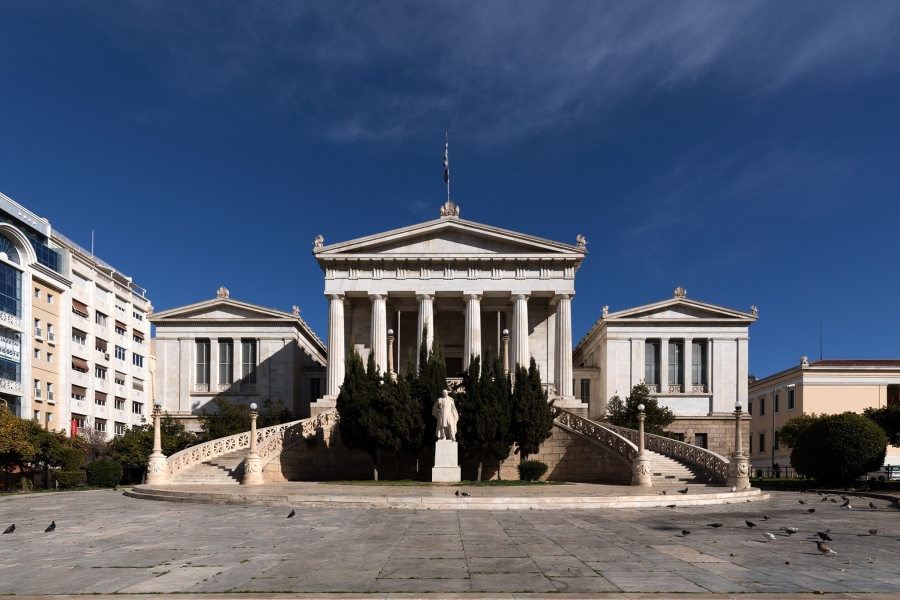
©Photo: Vassilis Makris
In addition, he lays out future plans regarding the operation and actions of the National Library, pointing out that “’technological humanism’ and user-centered design constitute core values of the National Library of Greece as it enters this new digital era”. He concludes with how he envisions the National Library of the future, noting that “at a time of growing extremism, post-truth and crisis, we hope to create the appropriate framework for synthesis, analysis, and creation of new meaning, using the treasures of the past to build a brighter future”.
Filippos Tsimpoglou holds a PhD in Library & Information Science from the Ionian University (2005) and a BSc in Economics from the Athens University of Economics and Business (1983). He was the Director of the Cyprus University Library and an ex officio member of the Cyprus University Senate from 1999 to 2014. He served as Head of three Departments at the National Documentation Centre of Greece / Hellenic Research Foundation (1983-1999) where he managed major EU framework and development programmes. In 2008 he published his book Collaborations between Libraries: a systemic approach. He has also published numerous articles for international scientific journals, books and conferences.
Since 2014 he is the General Director of the National Library of Greece and head of the historic relocation project to the Stavros Niarchos Foundation Cultural Centre. He is leading the design of digital services which will enable the organisation to enter the digital era, as well as the development of innovative services that strengthen and expand the core mission of the National Library.
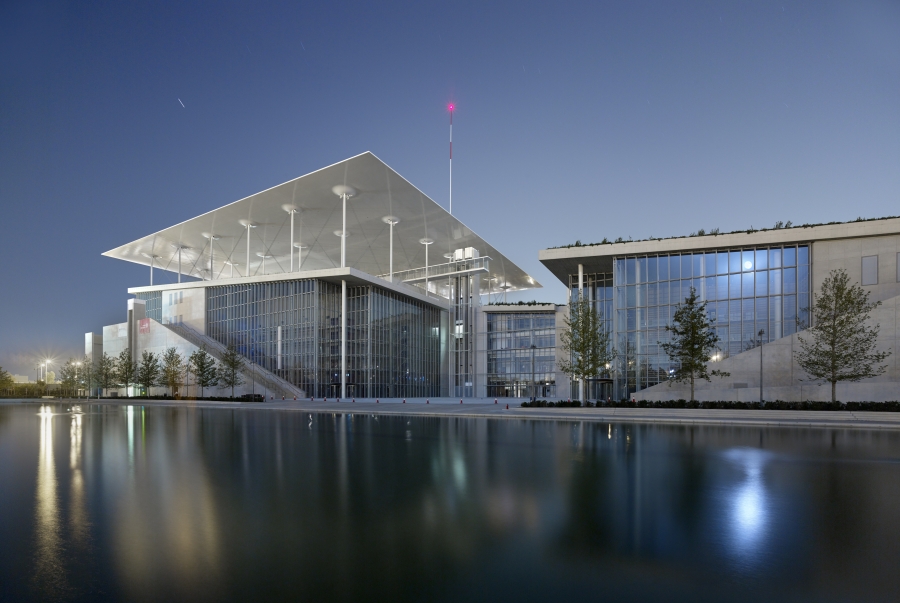
©Photo: Yiorgis Yerolymbos
What is the time schedule for the relocation of the National Library to its new building? When will the library be open to the public?
2017 marks the transition of the National Library of Greece to its new home at the Stavros Niarchos Foundation Cultural Centre (SNFCC). The landmark building was officially delivered by the Stavros Niarchos Foundation to the Greek state on February 23rd 2017 along with SNFCC S.A., the company responsible for overseeing facilities operation and maintenance. Its cross-institutional Board of Directors was appointed to ensure the sustainability of this complex project, home of two major public cultural organisations, the National Opera and the National Library, as well as the Stavros Niarchos Park.
Starting from March 2017, the National Library of Greece has six months to complete the relocation process and two months to conduct pilot operation at the new building. Based on this framework, the library opening is being scheduled for Autumn 2017. It is important to note that the National Library of Greece will then be operating from three buildings which will host different collections and services: the SNFCC, a building located in the Votanikos area and the historic Vallianeio building on Panepistimiou Street, part of the Athenian Trilogy. The Vallianeio building will require extensive restoration in order to function anew as a reading room and events space at the heart of the city.
You have stated that “the relocation of the National Library marks the transition to a new digital era of innovation and extroversion”. What will be the new and enlarged role of the National Library in its new premises?
The relocation project of the National Library is not merely about moving books from one building to another – it is about undertaking a leap of faith. This project constitutes a complete transition into a new era, so that the institution may truly fulfil its core mission as a National Library, provide new services to the public, and continue to meet contemporary challenges. The transition process comprises 40 different projects, which are managed and implemented by the NLG in partnership with external experts and contractors.
During this transition, we are enriching our collections and purchasing books for the first time after many years. We are upgrading our digital services and acquiring advanced technological equipment for key departments (i.e. conservation, microphotography, etc.). We are integrating and training new staff while launching seminars for libraries across Greece. We are redefining the NLG mission and brand in order to address new audiences and we are designing a new Public Library Section which will offer special services and educational programmes for children and teenagers. We are planning a series of events that will re-establish our unique intellectual position and we will open up our collections to the world.

Our aim is to offer a framework for information literacy, while applying innovative methods and approaches to learning which will constitute best practices and raise standards for all libraries in Greece. As you can imagine, managing this level of transformation within a Greek public institution during a time of uncertainty entails major challenges, which we hope to surpass by using a systemic approach and by building strategic partnerships.
At a more practical level, what about the necessary funds and personnel for the full operation of the National Library in the future? What are the state provisions in this respect?
The transition project is realised thanks to an unprecedented public-private partnership. The Greek State is providing a special subsidy of 5.200.000 euros and the Stavros Niarchos Foundation is providing a 5.000.000 euros donation. The National Library of Greece will require a yearly budget of 6.700.000 €, on top of staffing expenses, in order to cover the SNFCC facility management services and the institutions’ operations. We have now secured these funds from the Ministry of Finance on a yearly basis until 2022.
The NLG currently has 120 staff, which is insufficient. The 3785/2009 law predicts that the NLG will require 286 staff members for the full operation of the three buildings. The General Secretary of the Ministry of Education, Mr. Yannis Pantis, recently announced a hiring plan for 300 librarians at a national level, out of which 110 will be placed at the National Library. We are working towards securing the necessary human resources for tomorrow, while having the Library’s current staff work at full capacity on the relocation project today.
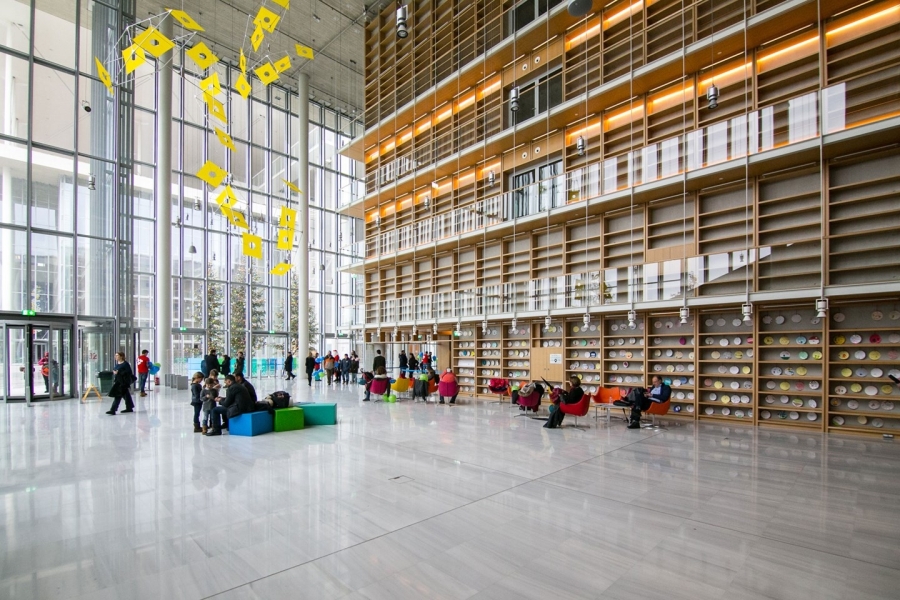
©Photo: Yiorgis Yerolymbos
What about your future plans regarding the operation and actions of the National Library? How will new technologies contribute to this end?
The National Library is reclaiming its leadership within the relevant scientific community in Greece, and redefining its role as a centre of excellence for the study of Hellenism globally. We are currently developing the Greek Libraries Union Catalogue in partnership with the Hellenic Academic Libraries Link at the National Technical University of Athens. This will provide a much-needed central database for librarians across the country to facilitate the cataloguing process, while enabling inter-library loans between institutions. Furthermore, we are acquiring access to major electronic databases which researchers will be able to access from within our new premises. Our digitization department is being enhanced with high-end technological equipment that will facilitate and improve the book scanning process and our overall digital preservation capabilities. At the same time, we are building a platform for our digital collections, which will provide remote access to digitized content, including manuscripts and newspapers.
Another area we are currently exploring is the development of the Greek Web Archive, which will ensure the preservation of our national digital heritage. We are developing an application for the digital legal depository, which will enable editors to submit their publications in print and digitally through a simple online process. New technologies will have a major role in the programming of our new Public Library Department. Studios for radio production, music recording and video-making, interactive applications, and open-source software will provide unique opportunities to children, teens and adults wanting to learn, experiment and co-create content within the new NLG building. “Technological humanism” and user-centered design constitute core values of the National Library of Greece as it enters this new digital era.
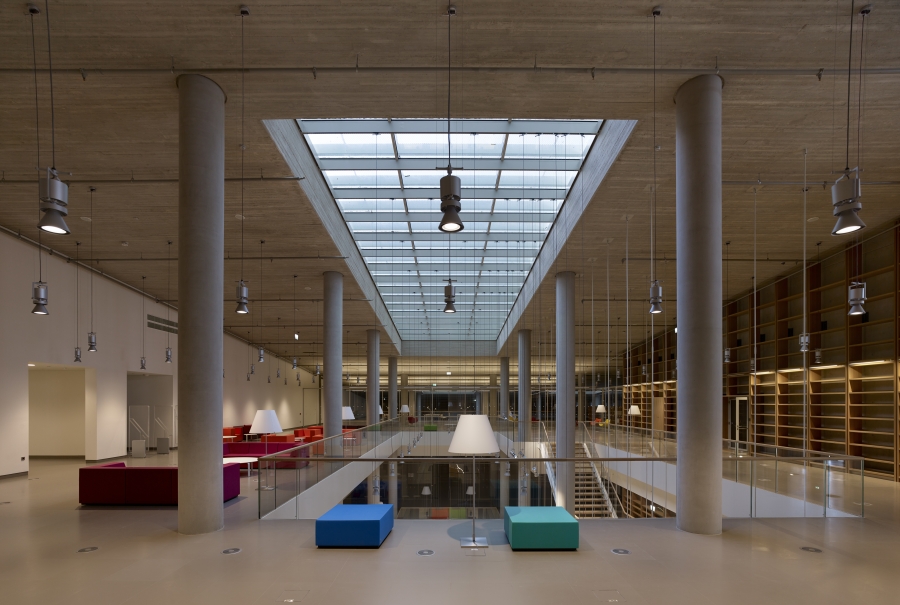
©Photo: Yiorgis Yerolymbos
Will the National Library act as a coordinator for libraries around Greece? How easy will it be to implement such a project?
Last year we founded the Greek Libraries Network, engaging 150 municipal and publiclibraries in a major Summer Reading Campaign, which produced over 3000 creative workshops for children across the country. 150 librarians were trained in fundraising and creative workshop facilitation, and developed diverse programmes based on a centrally produced bibliography and methodology.
The National Library of Greece has recently acquired the legal responsibility of coordinator of the Greek Libraries Network, which will expand so as to include academic, school and private libraries. With appropriate staffing and funding, the National Library aims to be the core institution providing library standards and prototype processes, training programs and experimental projects, providing the means to exchange information and expertise among Greek libraries, as well as fostering capacity-building opportunities. The network will enable the creation of common catalogues and will provide advocacy for financial, legal, and social matters that define the operation of libraries. Last but not least, it will facilitate the clustering of libraries under thematic initiatives such as e.g. funding programs for refugee integration or international book exchange programs.
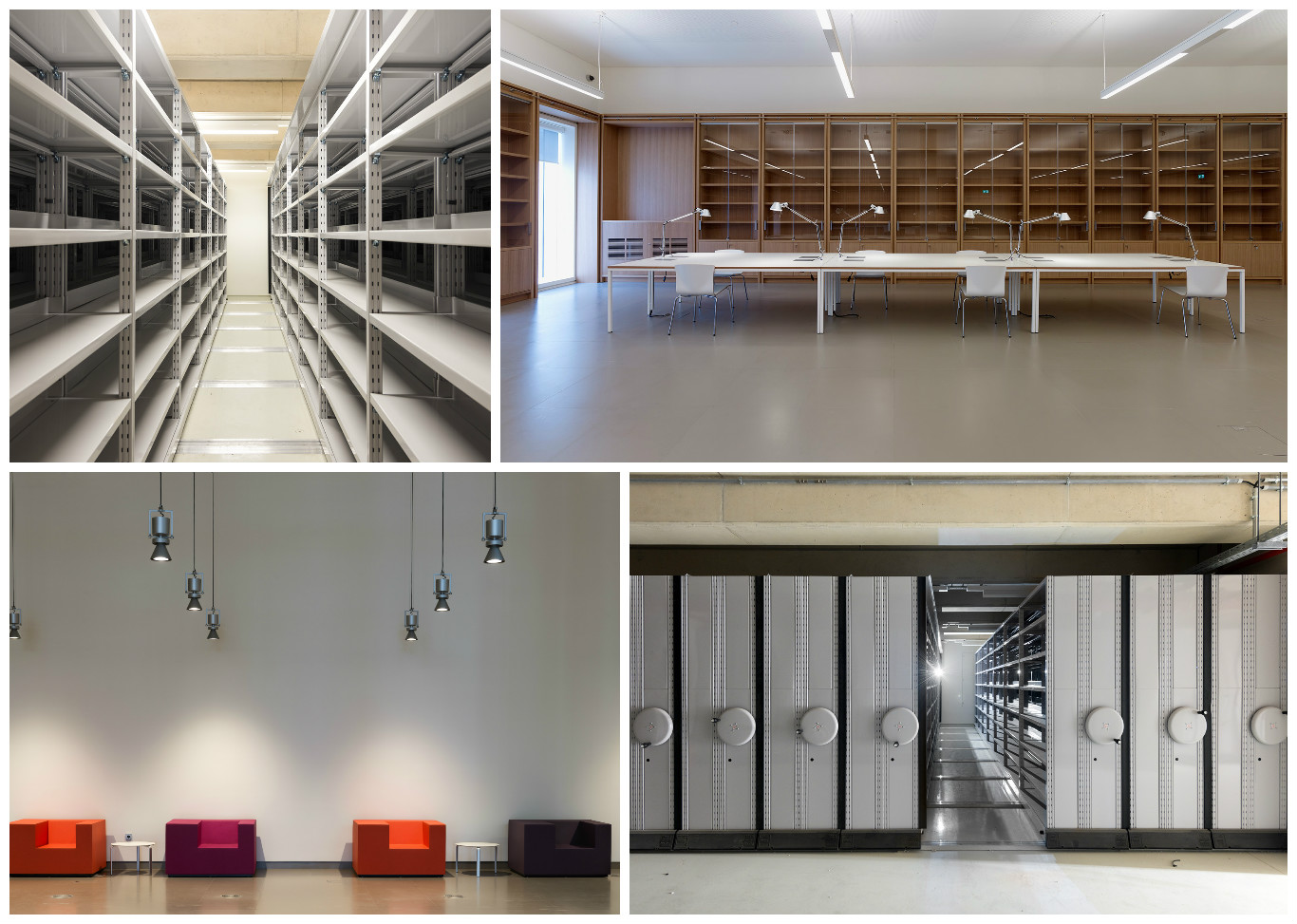
©Photos: Yiorgis Yerolymbos
The ultimate objective is to put libraries at the heart of each community and substantially upgrade the services that they offer to citizens. The new NLG premises will act as a meeting point for training librarians, a space of experimentation for new services, and a central hub for guiding audiences to discover local libraries across the country. The National Library of Greece is claiming its role as the leader of libraries and the libraries’ response is highly positive.
How do you envision the National Library of our future?
We envision the National Library of Greece as a living ecosystem where curiosity, research, creativity and innovation enable communities to grow self-awareness, collective spirit, humanism and democratic values. We aim to create an international centre of excellence for the study of Hellenism and a unique destination for researchers in the field of Humanities. The NLG will be repositioned to inspire and coordinate an open platform for the exchange of know-how, resources and content among diverse organizations across a vibrant network of public libraries at the national level. Following this objective, we are in the process of building partnerships with Universities, Institutes and NGOs at both the national and international level.
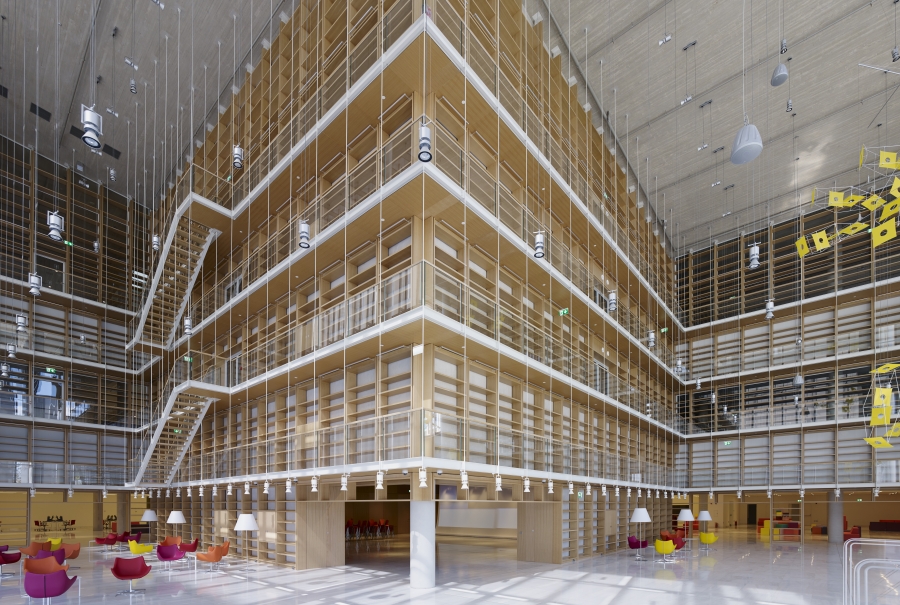
©Photo: Yiorgis Yerolymbos
We dare to see the NLG as a model public institution that develops cross-sector synergies and operates according to the values of openness and transparency. The NLG, by its nature, stands between paradoxes: the old and the new, the analogue and the digital, the expert and the popular, the past and the future, the national and the ecumenical. At a time of growing extremism, post-truth and crisis, we hope to create the appropriate framework for synthesis, analysis, and creation of new meaning, using the treasures of the past to build a brighter future. In this venture, the National Library of Greece will invite not only Greek society, but also the Greek Diaspora and Philhellenes worldwide to contribute to the preservation and collective flourishing of Hellenism for future generations.
* Interview by Athina Rossoglou
©INTRO IMAGE: Nikos Kokkalias
TAGS: LITERATURE & BOOKS | READING GREECE

